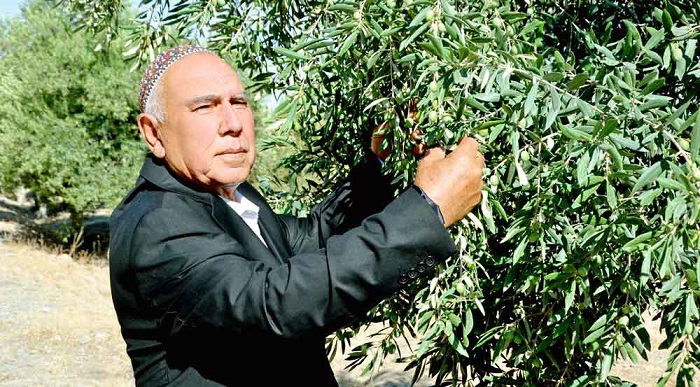Palvan Soyunov is a well-known Turkmen scientist and specialist in the field of horticulture, who devoted his life to the study and development of this industry.
Born in Etrek, Western Turkmenistan, Soyunov pursued his education at the Turkmen Agricultural Institute, graduating in 1977 with a specialization in fruit growing, horticulture, and viticulture. He developed a keen interest in olive trees early in his career. In 1986, he successfully defended his doctoral dissertation on “Agrobiological Properties of Olives” in Sukhumi, Georgia, earning him a Ph.D. in Agricultural Sciences.
Throughout his distinguished career, Soyunov has consistently expanded his scientific knowledge through dedicated research and academic pursuits within the agricultural sector.
Always looking for new ideas, in 2005 Palvan Aga won the main prize at the competition of scientists and specialists of the Caspian states for scientific work on the development of horticulture, animal husbandry and improving the ecology of the region. As the winner, he spent a month in the United States, where he gained first-hand experience of farming in eight states.
In addition, in 2006-2007, Soyunov visited Iran and Türkiye, where he got acquainted in detail with activities in the agricultural sector, especially in the field of horticulture. In 2010-2013, he won four national competitions.
In 1934, 27 varieties of olive trees were imported to Turkmenistan for the first time, which quickly adapted to the climatic conditions of Etrek and yielded good harvests. This achievement marked a historic first for Central Asia, as olive trees began to bear fruit in Turkmenistan in 1939, cultivated on the fertile lands of the Etrek region within a specialized subtropical farm.
“In ancient Greece, the olive tree was considered a sacred tree, and there was a saying: “Olive oil is liquid gold.” It was also called the “tree of life and health.” About forty-five years ago, or rather, between 1980 and 1985, I recommended that private households in our area distribute olive seedlings and grow them. It is noteworthy that since the villagers followed this advice, more than 2,000 olive trees are now growing in their households,” says Soyunov.
According to him, 35 species of olive tree have been studied in Turkmenistan.
Olive oil boasts exceptional bioavailability, with the human body absorbing a remarkable 98% of its content. This “liquid gold” offers a myriad of health benefits, including improved skin and hair texture, enhanced digestion, obesity prevention, strengthened immunity, slowed aging, reduced nervous tension, protection against gastrointestinal ailments, and bone fortification.
The Etrek region once served as a vibrant botanical garden, showcasing over 300 exotic tree species imported from North Africa, Europe, and Asia. Date palms, olives, figs, and eucalyptus were among these introductions, many of which continue to thrive in the region today.
Palvan Soyunov, having retired a few years ago, continues to take care of the fertility of olive trees in his garden and shares advice with the younger generation. A gardener who has connected his life’s work with Mother Earth considers this noble work to be the meaning of his life.///nCa, 7 January 2025 (based on the materials of the newspaper “Turkmenistan”)
